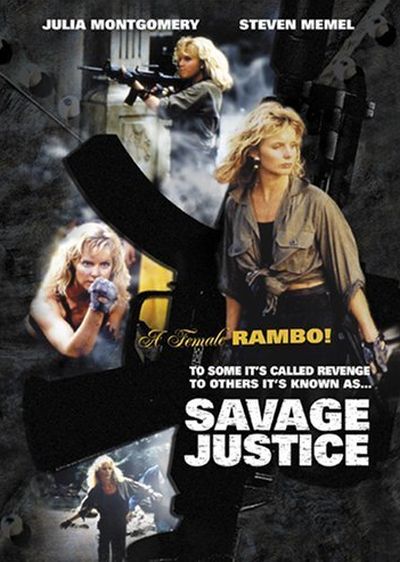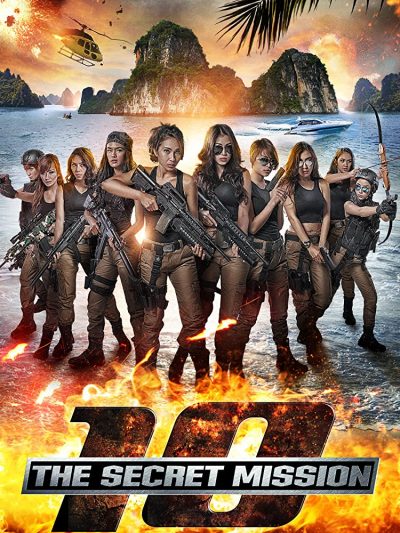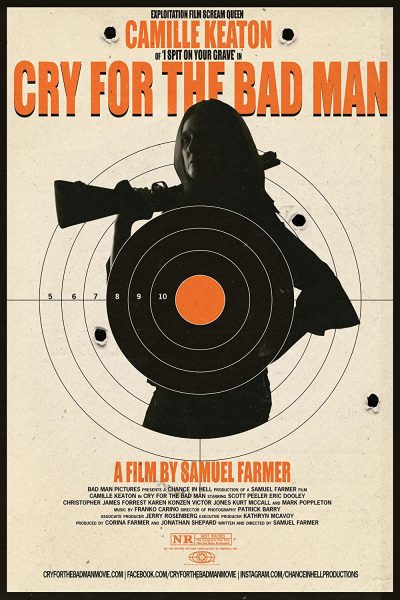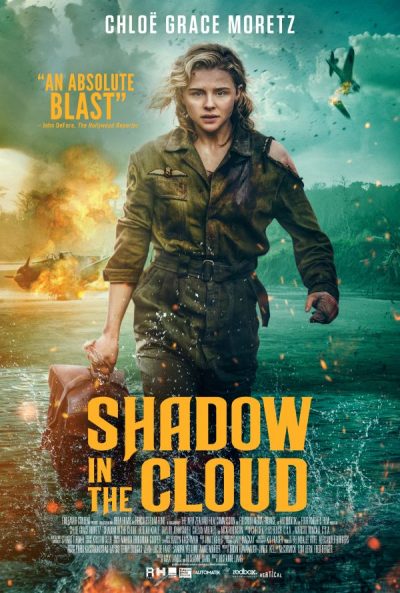★★★
“School’s out… for ever.”
 Yang Yang (Yang) is an impetuous young policewoman, whose career is on thin ice after shooting the target of what was supposed to be a surveillance operation. Her superior officer – who also happens to be her uncle – is forced to re-assign her, and sends Yang to operate undercover as a student in a high school from which girls have been going missing. The leading suspect is an arrogant pupil who has recently been accused of sexually assaulting a classmate. Teacher Wu Xie (Zhou) is a witness in the case, so Yang is also tasked with making sure he isn’t pressured into changing his statement. Fitting in is going to be part of the problem for Yang – despite the help of Molly (Li), who takes the “new girl” under her wing.
Yang Yang (Yang) is an impetuous young policewoman, whose career is on thin ice after shooting the target of what was supposed to be a surveillance operation. Her superior officer – who also happens to be her uncle – is forced to re-assign her, and sends Yang to operate undercover as a student in a high school from which girls have been going missing. The leading suspect is an arrogant pupil who has recently been accused of sexually assaulting a classmate. Teacher Wu Xie (Zhou) is a witness in the case, so Yang is also tasked with making sure he isn’t pressured into changing his statement. Fitting in is going to be part of the problem for Yang – despite the help of Molly (Li), who takes the “new girl” under her wing.
The idea of cops being sent undercover to school is hardly a new one, best known in the West through 21 Jump Street. Originally a TV series starring Johnny Depp, this was recently revived as a movie franchise, with a lighter tone. However, in much of the East, the touchstone is 1991’s Fight Back to School, with Stephen Chow as the policeman. It became Hong Kong’s all-time top-grossing film to that point, and foreshadows the comedic approach of the Hollywood movie. Those are some enormous boots to fill, and it’s hardly any kind of surprise that Yang is no Stephen Chow in terms of comedic persona or timing.
That said, it isn’t too bad. The lead actress actually looks like she could still be at school, which is an immediate leg-up over the thirty-something Channing Tatum, who was the least convincing high-school student since Olivia Newton-John. Even her “bad policewoman” attitude isn’t entirely inappropriate, though the film does have an unevenness of tone which is quite frequently awkward. The juxtaposition of a jokey approach with the sexual assault charges has not travelled well to the West [and while I’m at it, why is this apparently Chinese film set in Singapore?]
The action is a bit up and down, too. The best bit is a lighting-fast fight between Yang and someone out to ensure Wu doesn’t make it to court. This contains a sequence where they’re repeatedly throwing the same knife back and forth, snatching it out of the air before returning it in the opposite direction. It’s like a pointy version of badminton, up until the moment where Yang, apparently bored with the whole thing, catches the blade in her teeth. The rest isn’t on the same level, and proceeds in almost exactly the way you would expect. For example, Yang gradually falls for Wu, creating a scandal at the school, and which brings her into conflict with another student who has a pre-existing crush. However, after a run of really bad movies on Amazon Prime, I was delighted to latch onto something capable of reaching the dizzy heights of artistic competence. Sometimes, you just have to take what you can get.
Dir: Kai Jiang
Star: Yang Zou, Zhuo Wen, Mengmeng Li, Naisen Hou
a.k.a. Bad Cop





 In an unnamed third-world country, which looks suspiciously like the Philippines, unexpected turmoil catches American diplomats by surprise. Trying to flee the country, the Howard family are caught by the rebel force run by Sanchez (Vernal). Mom and Dad are killed, while daughter Sarah (Montgomery) is abducted by the rebel leader. Fast-forward a year, and it looks like Sarah has gone more or less full Patty Hearst. She has joined the revolution and become Sanchez’s main squeeze – much to the unhappiness of the previous incumbent. But, it turns out, Sarah was only playing a (very) long game, and waiting for the appropriate opportunity. When she goes along on a raid of a nearby town, she jumps ship, instead teaming up with local guy Rick (Memel) to defend the locals against Sanchez and his gang, intent on extracting revenge for her year of abuse. And she knows the location of the perfect arms cache which will help them. Though getting to it might be another matter.
In an unnamed third-world country, which looks suspiciously like the Philippines, unexpected turmoil catches American diplomats by surprise. Trying to flee the country, the Howard family are caught by the rebel force run by Sanchez (Vernal). Mom and Dad are killed, while daughter Sarah (Montgomery) is abducted by the rebel leader. Fast-forward a year, and it looks like Sarah has gone more or less full Patty Hearst. She has joined the revolution and become Sanchez’s main squeeze – much to the unhappiness of the previous incumbent. But, it turns out, Sarah was only playing a (very) long game, and waiting for the appropriate opportunity. When she goes along on a raid of a nearby town, she jumps ship, instead teaming up with local guy Rick (Memel) to defend the locals against Sanchez and his gang, intent on extracting revenge for her year of abuse. And she knows the location of the perfect arms cache which will help them. Though getting to it might be another matter. The daughter of the American ambassador is kidnapped, and is being held on an island off the Indonesian coast. Conventional attempts to stage a rescue mission end badly, and pressure from the US mounts on the government to do something. Colonel John (Thomas) is in charge, and comes up with a daring plan. Well, to be honest, the word “ludicrous” might be more appropriate, or perhaps that’s just me. He recruits ten models with a range of martial arts talents – silat, wushu, archery, etc. – and in five days, his tough-as-nails second in command, Major Cathy (Anderson) will lick them into a cohesive unit, which can infiltrate the island and mount a daring rescue. “Why do they have to be models?”, I hear you asking. Again, to be honest, this is never exactly explained. Still, for cinematic purposes, we’ll let it slide, since the intent is clear: it lets them kick ass, while looking good doing so.
The daughter of the American ambassador is kidnapped, and is being held on an island off the Indonesian coast. Conventional attempts to stage a rescue mission end badly, and pressure from the US mounts on the government to do something. Colonel John (Thomas) is in charge, and comes up with a daring plan. Well, to be honest, the word “ludicrous” might be more appropriate, or perhaps that’s just me. He recruits ten models with a range of martial arts talents – silat, wushu, archery, etc. – and in five days, his tough-as-nails second in command, Major Cathy (Anderson) will lick them into a cohesive unit, which can infiltrate the island and mount a daring rescue. “Why do they have to be models?”, I hear you asking. Again, to be honest, this is never exactly explained. Still, for cinematic purposes, we’ll let it slide, since the intent is clear: it lets them kick ass, while looking good doing so. Born as Maya, the heroine here adopted the name of “Jet” when she became part of a seriously black ops group, part of the Israeli intelligence service known as the Mossad. There, she and her colleagues had carried out thoroughly deniable operations against… well, supposedly Israel’s enemies, though it’s not as if she asks questions. The secrecy wasn’t limited to her work, as she carried on an unsanctioned relationship with David, the man in charge of the group. But eventually, it all became too much: with David’s assistance, Jet faked her own death on a mission and vanished off the grid, re-appearing as “Carla” in Trinidad, where she enjoyed a quiet life for several years. That came to a sudden end when assassins make an attempt to terminate her new identity. Her cover has clearly been blown. The questions are: what happened, who is responsible, and how can Maya a.k.a. Jet a.k.a. Carla restore the balance?
Born as Maya, the heroine here adopted the name of “Jet” when she became part of a seriously black ops group, part of the Israeli intelligence service known as the Mossad. There, she and her colleagues had carried out thoroughly deniable operations against… well, supposedly Israel’s enemies, though it’s not as if she asks questions. The secrecy wasn’t limited to her work, as she carried on an unsanctioned relationship with David, the man in charge of the group. But eventually, it all became too much: with David’s assistance, Jet faked her own death on a mission and vanished off the grid, re-appearing as “Carla” in Trinidad, where she enjoyed a quiet life for several years. That came to a sudden end when assassins make an attempt to terminate her new identity. Her cover has clearly been blown. The questions are: what happened, who is responsible, and how can Maya a.k.a. Jet a.k.a. Carla restore the balance? Despite a very brief running time of only 70 minutes, this still manages to seem talky and overlong. That’s a shame, as it manages to waste a good performance from a genre veteran, playing an action heroine who is not your typical one. The former is Camille Keaton, who is having a bit of a B-movie renaissance in her career, forty years after starring in the notorious rape-revenge film, I Spit on Your Grave. And the latter? Well, Keaton is now in her seventies, but based on this, is still capable of wielding a mean shotgun. And clearly, of taking no shit from anyone. Indeed, you could almost read this as the sundown years of her Grave character, Jennifer Hills.
Despite a very brief running time of only 70 minutes, this still manages to seem talky and overlong. That’s a shame, as it manages to waste a good performance from a genre veteran, playing an action heroine who is not your typical one. The former is Camille Keaton, who is having a bit of a B-movie renaissance in her career, forty years after starring in the notorious rape-revenge film, I Spit on Your Grave. And the latter? Well, Keaton is now in her seventies, but based on this, is still capable of wielding a mean shotgun. And clearly, of taking no shit from anyone. Indeed, you could almost read this as the sundown years of her Grave character, Jennifer Hills. This is the kind of film which I’d say was enjoyable, rather than being good. Indeed, if you want an illustration of the difference between the two, this movie is a good example. Sona Mukherjee (Fernandez) is the wife of respected doctor, Mrityunjoy Mukherjee (Bajpayee). But their life is upended when the bodies of six, formerly pregnant, unmarried women are found on their property. Sona believes her husband was framed – possibly by police inspector and former boyfriend Imran Shahid, (Raina). She takes the advice of a dubious lawyer, who suggests that if the serial killer was shown to be still active, that would prove her husband’s innocence. So Sona kidnaps another expectant young woman, Anushka Tiwari (Khan) to provide a seventh victim. Only… well, Sona is a bit crap as a serial killer, and Anushka is a feisty little thing with a black-belt in taekwondo, pregnancy be damned.
This is the kind of film which I’d say was enjoyable, rather than being good. Indeed, if you want an illustration of the difference between the two, this movie is a good example. Sona Mukherjee (Fernandez) is the wife of respected doctor, Mrityunjoy Mukherjee (Bajpayee). But their life is upended when the bodies of six, formerly pregnant, unmarried women are found on their property. Sona believes her husband was framed – possibly by police inspector and former boyfriend Imran Shahid, (Raina). She takes the advice of a dubious lawyer, who suggests that if the serial killer was shown to be still active, that would prove her husband’s innocence. So Sona kidnaps another expectant young woman, Anushka Tiwari (Khan) to provide a seventh victim. Only… well, Sona is a bit crap as a serial killer, and Anushka is a feisty little thing with a black-belt in taekwondo, pregnancy be damned. This falls victim to the Spielberg Effect. By that, I mean, that any movie directed by Steven Spielberg will inevitably become the yardstick by which future entries of that kind are judged – typically, unfavourably. Killer shark films will be compared to Jaws. Holocaust epics to Schindler’s List. And the genre of movies in which drivers are menaced by unseen truck drivers? Expect comparisons to Duel. And in this case, they are entirely warranted. I guess if you’ve never heard of Duel, this might just pass muster. But you would still be better off watching it, than this lame imitation, which has a nice car (a Mustang) and some lovely scenery (I’m guessing Canadian). That’s all it can offer though.
This falls victim to the Spielberg Effect. By that, I mean, that any movie directed by Steven Spielberg will inevitably become the yardstick by which future entries of that kind are judged – typically, unfavourably. Killer shark films will be compared to Jaws. Holocaust epics to Schindler’s List. And the genre of movies in which drivers are menaced by unseen truck drivers? Expect comparisons to Duel. And in this case, they are entirely warranted. I guess if you’ve never heard of Duel, this might just pass muster. But you would still be better off watching it, than this lame imitation, which has a nice car (a Mustang) and some lovely scenery (I’m guessing Canadian). That’s all it can offer though.

 Eva Destruction – and, yes, that
Eva Destruction – and, yes, that